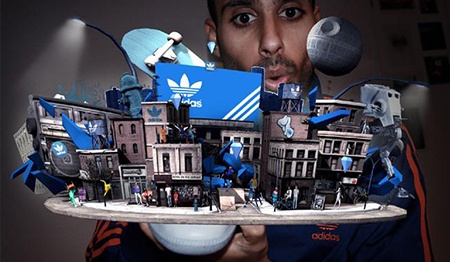Speaking of HTC's VIVE, maybe few people know what it is. But if you mention another VIVE partner, if you often pay attention to the game, then the name of VALVE must be familiar with it, including CS and DOTA 2 are all works of V.
HTC VIVE is a VR (Virtual Reality) display launched by HTC and VALVE at MWC in Spain earlier this year. This is another virtual reality display after Sony exposed Project Morpheus (now renamed PS VR). Yesterday HTC VIVE co-founder Chen Xinsheng accepted an exclusive interview with Sina Technology.
"New technologies take 7 to 10 years from emergence to popularization. It takes time for VR to go to the public." Although the industry believes that next year is the "first year" of virtual reality, Chen Xinsheng said that it is necessary to spread VR to the average consumer. ~5 years.
Hardware technology is one of the factors that restrict the development of VR. Chen Xinsheng said that the current high-end PC configuration can meet the dual 1080P VR display at a refresh rate of 90 frames per second, but often requires a bulky cable. And now the highest-end mobile devices have not yet achieved this computing power.
"If the technology reaches this level, then the software is like this (to half)." Chen Xinsheng, who is not very good at Putonghua, has a side to side.

Even if HTC is backed by the Steam platform, Sony relies on PlayStaTIon, and VR games are mostly experience DEMO, and it has not become a phenomenal product. Therefore, Chen Xinsheng revealed that cooperating with manufacturers to develop content is the top priority of the current work. HTC and VALVE will use the investment, cooperation and other means to draw developers to produce content under their platform.
Chen Xinsheng said that as a feature of VR, immersion and presence are very important. However, the current way of interacting with the handle can greatly ruin both feelings. To play a shooting game you need a virtual gun. To play action games you need a universal treadmill. To play a simulated roller coaster game you need a seat that can simulate weightless overweight. Therefore, HTC is also actively working with neighboring vendors to launch different types of game controllers.
Chen Xinsheng also said that the game is actually only a small part of the VR application field. HTC chose to intervene in the VR field through the game because the team believes that the new technology will be accepted by young people first, and most young people like to play games.
At the same time, he also believes that VR may change many industries, such as film and television industry. Bring the audience into the movie, and future movies may add a lot of interactive plots.
When talking about the time-to-market of HTC's specific consumer VR products, Chen Xinsheng can only shrug. Although the company has recently stepped up its efforts to work with developers, it is not certain when the product will be available.
Although most of the current VR companies and personnel are mostly in Europe and America, Chen Xinsheng believes that China and Japan will be the most promising markets in Asia.
There are also VR startups like Da Peng and 3Glasses in China, but in the face of Facebook behind Oculus, Steam behind HTC VIVE, and PlayStaTIon platform behind PS VR, small startups do not have the ability to integrate the entire ecosystem. So how will these small start-ups survive and develop? Chen Xinsheng said that creativity is the only survival capital and core competitiveness of these companies.
home energy storage,household power storage,home solar power,all in one system
Shenzhen Enershare Technology Co.,Ltd , https://www.enersharepower.com